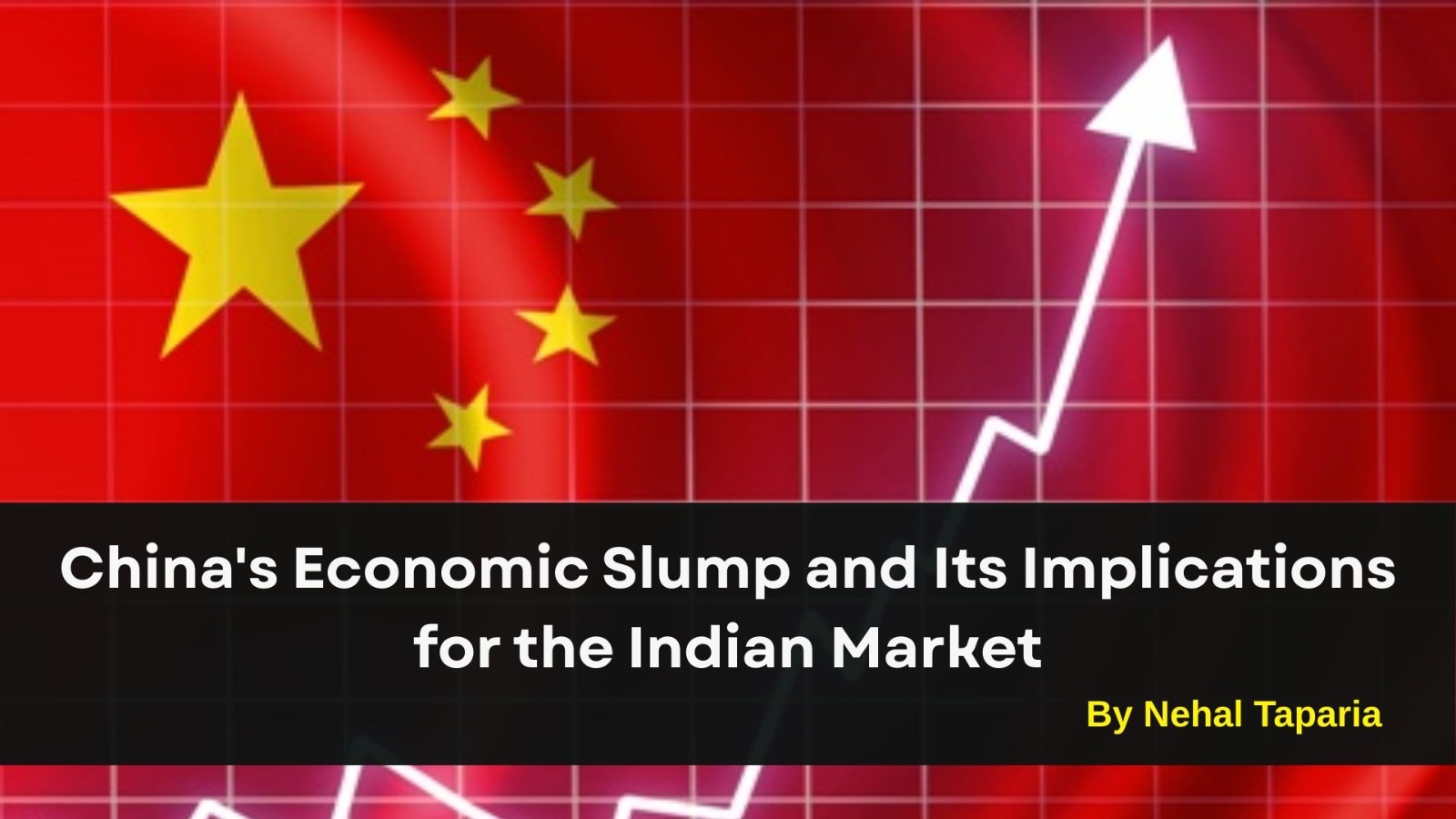China's Economic Slump and Its Implications for the Indian Market

China's Economic Slump and Its Implications for the Indian Market
China's Economic Challenges Deepen
China's economy is grappling with a significant slowdown, marked by a 0.4% year-on-year decline in the Consumer Price Index (CPI) for August—the steepest drop in six months. This deflationary trend is attributed to sluggish domestic spending, a prolonged slump in the property market, and mounting export challenges. Factory gate prices also decreased, indicating broader economic pressures.
Despite efforts to stimulate demand, including infrastructure spending and consumer subsidies, the impact has been limited. Analysts express concerns that the deflationary environment may persist, posing risks to China's growth targets.
Impact on the Indian Market
1. Export Dynamics
China's reduced domestic demand and export challenges may lead to increased competition in global markets. Indian exporters could face pressure as Chinese goods flood markets at lower prices. However, this situation also presents an opportunity for India to enhance its export competitiveness by focusing on quality and innovation.
2. Trade Relations
The economic slowdown in China could influence trade negotiations and partnerships. India may find opportunities to strengthen its trade relations with other countries, diversifying its economic partnerships.
3. Foreign Investment
China's economic challenges might lead to a reevaluation of investment strategies by global investors. India's stable economic environment and growth prospects could attract increased foreign direct investment, boosting sectors like technology, manufacturing, and services.
4. Commodity Prices
China's reduced industrial activity may lead to lower demand for raw materials, impacting global commodity prices. India, being a major importer of commodities, could benefit from decreased costs in sectors such as energy and metals.
5. Currency Fluctuations
Economic uncertainties in China may lead to fluctuations in the yuan, affecting currency exchange rates. The Indian Rupee's performance against major currencies could be influenced by these dynamics, impacting trade and investment flows.
Conclusion
While China's economic slowdown presents challenges, it also offers opportunities for India to strengthen its position in the global market. By focusing on innovation, quality, and strategic partnerships, India can navigate the complexities of this global economic shift and emerge as a resilient and competitive economy.
By Nehal Taparia
This content is for educational and knowledge purposes only and should not be considered as investment or Trading advice. Please consult a certified financial advisor before making any investment or Trading decisions.
Our Recent FAQS
Frequently Asked Question &
Answers Here
Q1: What is causing China's economic slowdown?
China is experiencing a slowdown due to factors such as sluggish domestic spending, a prolonged slump in the property market, and challenges in exports. These issues have led to deflationary pressures and decreased factory gate prices.
Q2: How does China's economic situation affect India?
Q3: Can India capitalize on China's economic slowdown?
Q4: What steps is India taking to mitigate the impact?
Copyright © By Empirical F&M Academy. Design & Developed by Techno Duniya


.jpg)


.jpeg)




